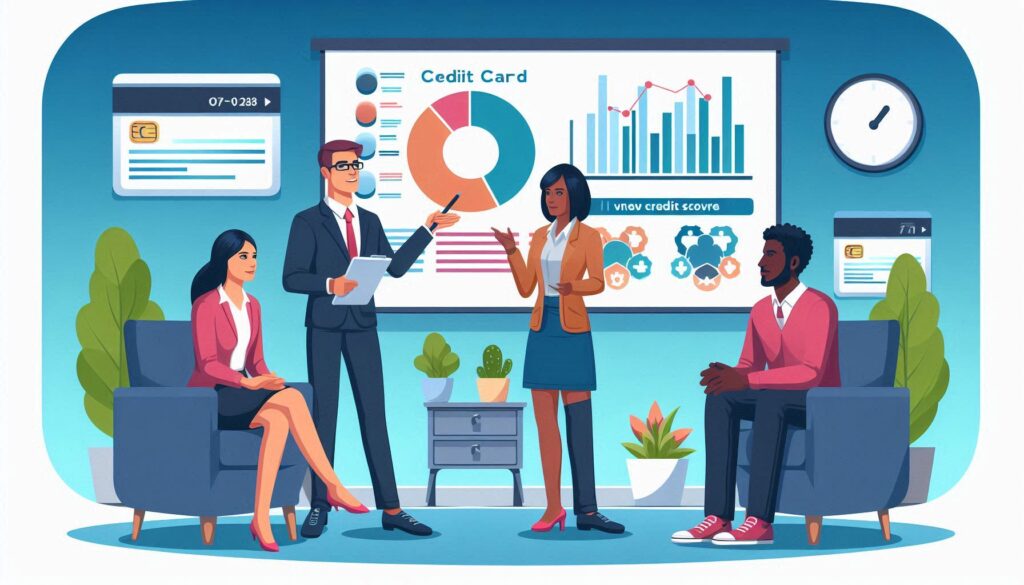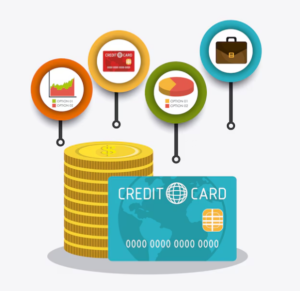Discover how your credit score is secretly shaped by credit cards (and how to make them work for you)
Credit cards are more than convenient payment tools; they play a direct role in shaping your credit score. Understanding how to manage them wisely can transform your financial opportunities.
In the U.S., a well-maintained credit card can unlock better loan rates and higher approval odds, but without the right strategy, it might end up doing more harm than good to your credit profile.
How credit cards influence your credit score

Credit cards impact your credit score through multiple factors. Each time you swipe, pay, or miss a due date, your credit behavior gets reported to bureaus. These reports feed into the algorithms that determine your score, which lenders use to assess your financial reliability.
The most influential part of your credit score is your payment history. Even a single missed credit card payment can drastically lower your score. This is why consistent on-time payments are essential for anyone looking to build or protect their credit standing.
Another vital factor is credit utilization. This refers to how much of your available credit you use compared to your total limit. For example, if you have a $5,000 limit and use $4,500, your utilization rate is dangerously high. Keeping it under 30% can help demonstrate responsible credit management and positively influence your score.
The length of your credit history also matters. Older credit accounts contribute positively by showing long-term management. Opening new cards can be helpful, but maintaining older ones active is just as crucial to avoid shortening your average account age.
Credit mix and new credit inquiries are the final pieces of the puzzle. Using different forms of credit, like personal loans alongside credit cards, adds variety to your profile. However, too many hard inquiries from new applications can temporarily lower your score, so be mindful of how often you apply.
Smart ways to use credit cards for score growth
Maintaining low balances and paying in full
Carrying large balances month after month can damage your credit health. By keeping your balances low and paying them off in full, you show lenders that you are not reliant on credit to manage your expenses. This habit not only avoids interest charges but also keeps your utilization rate in check.
Making frequent, small payments throughout the month is another helpful strategy. Instead of waiting until your statement is due, consider paying down your balance every week. This method keeps your reported balance lower and can contribute to a healthier credit score.
Opening new credit cards can also help by increasing your overall credit limit. When used carefully, this reduces your utilization percentage and provides more room for financial flexibility without raising your debt levels.
For those with large purchases ahead, spreading the expenses across multiple cards can prevent high balances on any single account. This ensures your utilization remains balanced and controlled, avoiding the negative impact of a maxed-out card.
Managing payment history for long-term success
Your payment history accounts for around 35% of your credit score. This means it’s crucial to pay at least the minimum amount due on every card by the deadline. Setting up automatic payments can eliminate the risk of accidental missed payments.
If you ever do miss a payment, acting quickly is key. Contact your issuer as soon as possible and make the payment immediately. Some lenders may even forgive the late payment if it’s your first offense, preventing a negative mark on your credit report.
Beyond timely payments, avoid closing old accounts unless absolutely necessary. The age of your credit accounts contributes to your overall score, so keeping older cards open can strengthen your credit history and reflect positively on your profile.
Another helpful tactic is to use reminder apps or calendar alerts for due dates. Even if you have automatic payments set up, monitoring your accounts manually can prevent overlooked issues like declined payments or billing errors that might harm your score.
Responsible credit card use and credit mix
Diversifying your credit portfolio
A strong credit profile benefits from a balanced mix of credit types. While credit cards are revolving credit, adding installment loans like auto loans or personal loans can round out your credit history. This diversity helps demonstrate that you can manage various types of debt responsibly.
Using multiple credit cards, when handled properly, can contribute to this mix. However, applying for too many cards at once can lead to hard inquiries, which may temporarily lower your score. Space out applications to minimize this effect while still expanding your credit opportunities.
If you manage several cards, use them periodically to keep them active. Dormant accounts may be closed by issuers, which can reduce your overall available credit and inadvertently raise your utilization rate. Rotating your usage ensures all accounts stay open and contributing positively.
Additionally, monitoring your credit regularly helps you stay informed of your progress. Free credit monitoring tools or reports allow you to catch errors and address potential problems before they impact your financial goals.
How to recover from credit card mistakes
Credit cards are powerful tools, but mistakes happen. Late payments, high balances, or maxed-out cards can harm your score. The good news is that with intentional action, recovery is possible.
Begin by focusing on reducing debt. Prioritize paying off cards with the highest interest rates first while maintaining minimum payments on others. This strategy helps you lower your overall debt burden and improves your utilization rate at the same time.
Review your credit reports regularly to identify errors or outdated negative marks. Disputing inaccuracies can give your score a quick boost. Free annual credit reports from major bureaus make this task manageable and worthwhile.
As you repair your credit, avoid closing paid-off cards. Keeping them open helps maintain your credit limit and the length of your credit history. Combined with responsible ongoing use, these factors can gradually rebuild your credit health.
Consider negotiating with your credit card issuers if you’re struggling. Some companies offer hardship programs or temporary interest rate reductions, making it easier to catch up and prevent further damage.
Long-term benefits of strategic credit card use
When you treat credit cards as financial tools rather than unlimited spending sources, the long-term benefits can be substantial. A strong credit score opens doors to favorable loan terms, higher credit limits, and exclusive financial opportunities.
By understanding the role of payment history, utilization, account age, and credit mix, you can make informed decisions that enhance your financial stability. Over time, these habits create a positive feedback loop that keeps your score growing and your options expanding.
What starts as small actions—paying on time, keeping balances low, managing accounts wisely—leads to a lifetime of financial advantages. These practices ensure you can rely on your credit as a powerful ally whenever you need it.
Graduated and master's student in History. Fanatic of books and series. Editor since 2023.




